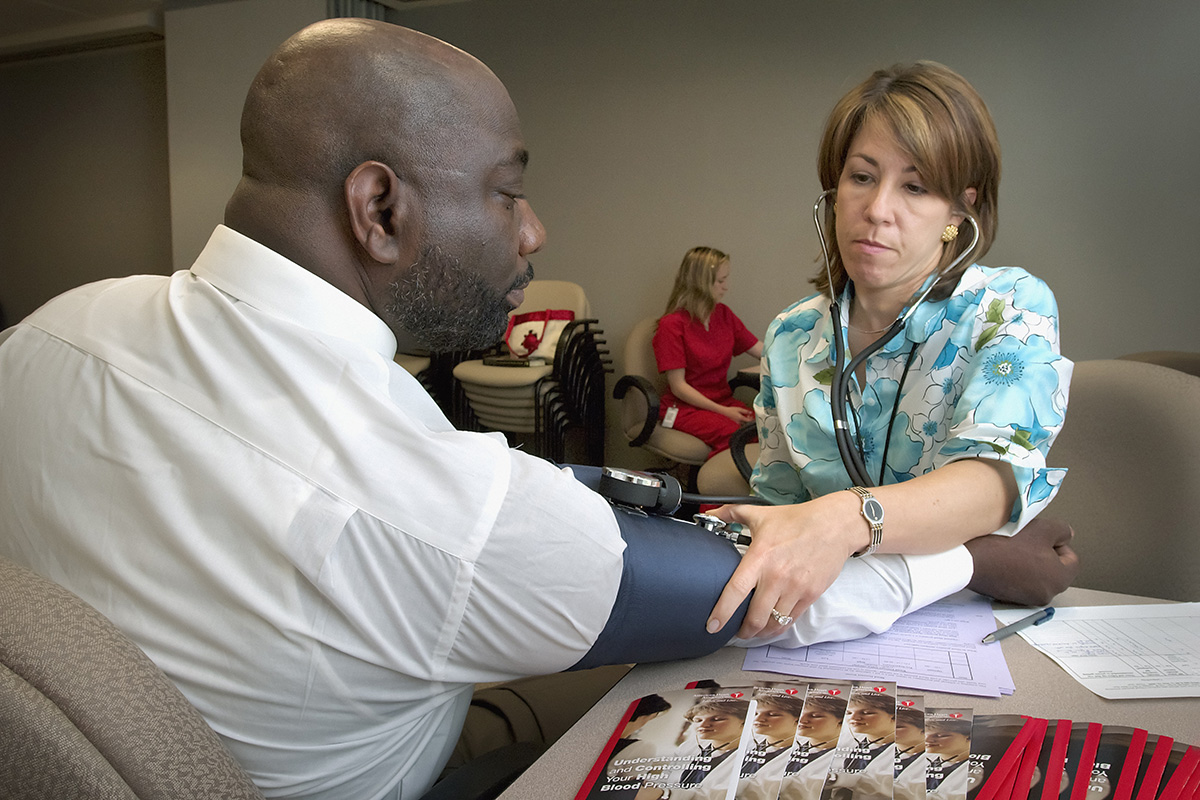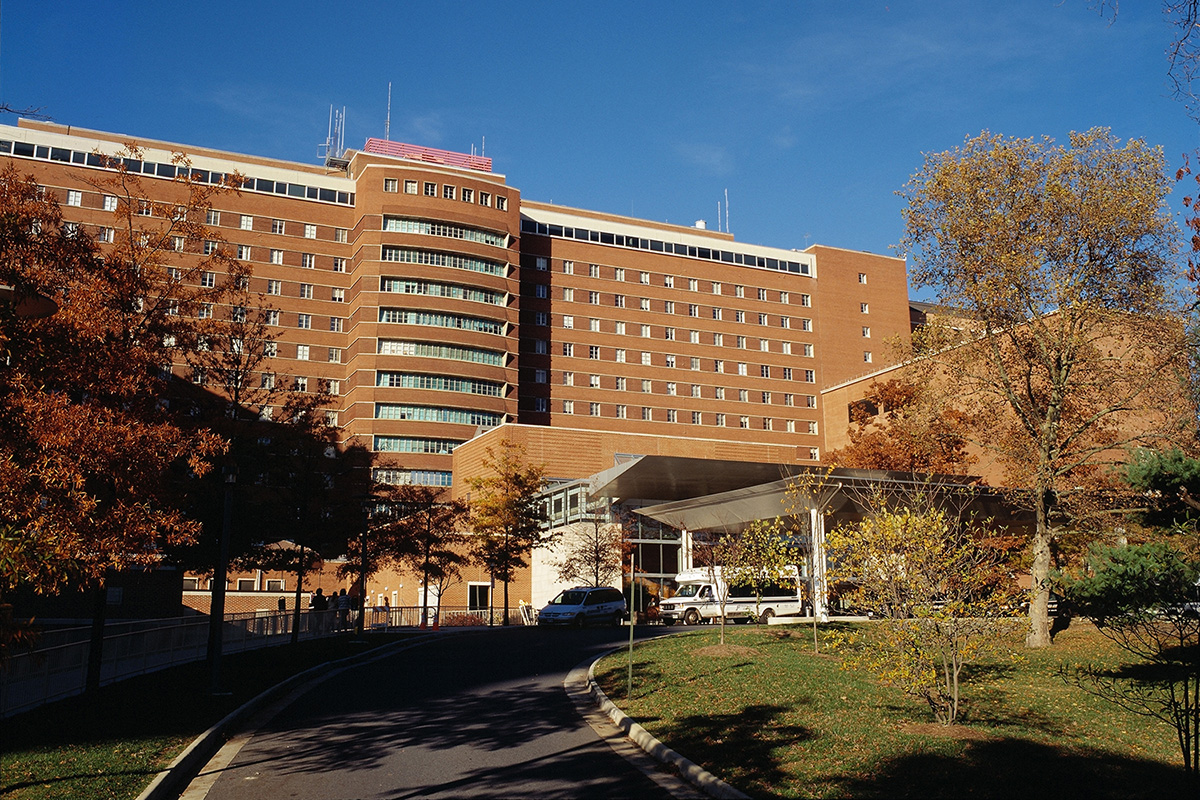Victor Sutton, head of the Jackson Heart Study Community Engagement Center, is alarmed at the concerning observations his organization has uncovered regarding the heart-health needs of Black residents in Hinds, Rankin and Madison counties.
Between Oct. 1, 2020, and Sept. 30, 2021, Sutton’s team has measured the blood pressure of scores of African Americans in these communities, even as they waded through challenges that the COVID-19 pandemic has presented in collecting data. Most of that data came through barbershops in Mississippi.

“In our barbershops, they screened around 165 individuals, and they found that maybe 133 had elevated blood pressure (120/80 and above); 63 of those were in crisis (level),” Sutton told the Mississippi Free Press over the phone in January 2022. “Of the 133, only 65 had been previously told they had high blood pressure, and of those, only 37 had it in control.”
His team refers people whose blood-pressure readings are in crisis mode—those measuring 180/120 and above—to their primary health-care providers or to a community health center, Sutton added.
Do you think our journalism is essential? Give today and support our work.
The Jackson Heart Study is the largest research study in history to investigate the biological, genetic and environmental risk factors associated with the disproportionate burden of cardiovascular disease in African Americans, the National Heart Lung and Blood Institute wrote.
20 Years of Information Now
The widely respected Jackson Heart Study began in 2000 with the recruitment of more than 5,000 African Americans from the Jackson metro area who have since undergone comprehensive health screenings at intervals to generate data for research purposes. The first examination collected data detailing the health differences between 2000 and 2004, the second between 2005 and 2008, and the third between 2009 and 2012. The study has been tracking the same individuals since 2000.

Dr. April Carson, who joined as the new director of the program in September 2021, says she relishes the chance to meet the participants and to continue the legacy of the study. In a Zoom interview with the Mississippi Free Press in February 2022, she said the program was in the middle of its fourth examination.
“Whenever I go to conferences, Jackson Heart Study is always at the forefront just because of the work we’re doing, (and) there’s been a commitment from our participants for over 20 years,” she said during the interview.
Prior to this position, Carson served as an associate professor of epidemiology and associate dean for diversity, equity, and inclusion at the University of Alabama at Birmingham School of Public Health.
“The design is that we recruited and enrolled over 5,000 participants some 20-plus years ago,” Carson said. “We’re right now bringing them back in to really do another (the fourth) exam.”
“During that visit, we do blood pressure, weight, height, some memory, thinking measurements, physical function, really sort of a complete assessment,” she added. “I think what is really great about that is we’re basically talking about 20 years of information on our participants.”
The Jackson Heart Study receives funding from National Heart Lung and Blood Institute and the National Institute on Minority Health and Health Disparities, both National Institute of Health organizations.
Linking Diabetes to Lifestyles
Between 1980 and 2012, the number of people with Type 2 diabetes increased among the African American population, a Jackson Heart Study document that Dr. Carson provided to the Mississippi Free Press revealed. But the percentage remained the same among white people.
Jackson Heart Study researchers looked into 3,252 African American participants who did not develop diabetes between 2000 and 2004 and then followed them until 2013 to compare the lifestyles of those who developed diabetes with those who did not. A total of 560 participants developed Type 2 diabetes.
The study found that those who did not develop diabetes were also more likely to regularly exercise, to eat a healthy diet, to avoid smoking, to watch TV for fewer hours than average and to get more hours of sleep per night.
“This finding was strongest among participants who started the study with a low body mass index, normal waist circumference and normal blood-sugar levels,” the document added. “These findings suggest that a healthy lifestyle is helpful in the prevention of Type 2 diabetes among African Americans and that diabetes prevention programs need to pay equal attention to African Americans who are not overweight and have a healthy lifestyle.”

The Jackson Heart Study collaborates with various institutions for research advancement, community engagement and educational development—including the University of Mississippi Medical Center, Jackson State University and Tougaloo College—for academic-development objectives, and the Mississippi State Department of Health for the community-engagement objectives.
Former Jackson Heart Study Director Adolfo Correa, who retired in December 2020, said at that year’s conference celebrating 20 years of study that one of the program’s aims is to encourage underrepresented minorities to pursue careers in biomedical research and public health. He added that the study had generated more than 600 publications with an average number of 50 citations per publication by July 2020.

“The study has an undergraduate training and educational center at Tougaloo College that has developed and implemented science, language, arts and mathematics summer workshops for high-school students,” Correa said. He noted that more than 1,000 high-school students had completed the workshops and that many have attended Tougaloo College and become Jackson Heart Study scholars.
‘Inform, Consult and Involve’
The Community Engagement Center component began in 2017. One of its health-education and screening-outreach efforts, called BROTHERS, involves working with barbershops. The program, which stands for Barbers Reaching Out to Help Educate on Routine Screenings, targets African American males, as that demographic can be “some of the hardest population(s) to get to the health care, for them to take care of themselves,” Sutton explained.
Other programs allow Jackson Heart Study to work with housing facilities, local government, and faith-based organizations and community groups.
“We talk about hypertension and risk reduction around screenings and around free education for low-income families and disabled adults and those kinds of things,” Sutton said of activities at the housing facilities. “(We also look) at other things at those housing facilities to promote access to healthy foods and recreation to reduce secondhand smoke.”
To further encourage better heart health within metro Jackson, Jackson Heart Study has worked to establish mayoral health councils. Sutton said that the Center for Community Engagement has worked with the mayors of Edward, Canton and Jackson in that regard.

“Where mayors sit, they have a lot of opportunities to do a lot of great things in their community, of course,” Sutton said. “So the mayor’s health council is kind of the vehicle that we’ve used for that community-engagement piece, understanding that our basic principles for community engagement is more like ‘inform, consult and involve.’”
“We don’t have all the answers, but we want to provide that information,” he added. “We want to consult with that community, and we want to get that community involved with these efforts.”
Evidence-Based Health Education
The work revolves around mental health, mitigating risks associated with sexual activities, alcohol-use, peer pressure, and bullying. For its work with the faith-based communities, Jackson Heart Study created a congregational health alliance, through which it helps these groups establish health ministries so that they “can work with their congregation and their surrounding communities,” Sutton said.
The principal investigator said that in various churches, the center screened about 55 individuals. Forty-seven people had elevated blood-pressure readings, and 29 were above 180/120. “Thirty-one had been previously diagnosed, and of that, 35% had it in control,” he detailed.
“(We) look at opportunities to provide evidence-based type health education programming around heart disease and risk reduction, establishing those partnerships, those local partnerships, state partnerships, national partnerships, when that’s appropriate and reaching out to the target communities,” Sutton explained.

National Heart, Lung, and Blood Institute Director Dr. Gary Gibbons said this about JHS in September 2020 during the program’s 20-year celebration: “This study has paved the way for inclusive research and has established itself at the vanguard as an original, the largest longest-running study to investigate cardiovascular disease in African Americans that exists.”
“Fundamental to this research was to determine the risk factors associated with this disproportionate burden of cardiovascular disease among African Americans,” he continued.
He further explained that the study goes beyond observing cholesterol and blood-pressure levels to focus on other social determinants of health, including financial stresses, racism, discrimination, environmental factors of the built environments and racial health disparities.
“The Jackson Heart Study was at the vanguard of that sort of research, and it really continued to be at the forefront by expanding from observational studies to translational research, and indeed the superimposition of certain interventions designed not only to describe disparities but start to develop strategies to intervene and reduce them, if not eliminate,” Gibbons said.

He determined that the findings will help with the needed intervention for the evidence-based elimination of health disparities and inequalities.
Dr. Gibbons said that the Jackson Heart Study’s work affords the scientific community the opportunity to “understand the intersection between genetic factors and the social determinants of health in the distinctive of lived experience of African Americans, who not only have an ancestral pattern in their genome but also have the historical effects of structural racism and other social effects that impinge upon health,” he said.
Racial Discrimination and Heart Health
Dr. Carson told the Mississippi Free Press that “another area that the study has really led the way in has been understanding community resources and neighborhood environment.”
“So we’ve had several studies to look at where someone lives and what that environment entails,” she added. “A lot of that’s from administrative data, but again, we’re able to now pull that information combined with the measures that we’ve collected and talk about how the neighborhood features can impact people’s health as well.”
A research summary that Carson shared with the Mississippi Free Press stated that researchers studied the impact of racial discrimination on heart health to understand why African Americans have higher high-blood-pressure rates than other racial and ethnic groups in the United States.
They found out that between visit 1 (2000-2004) and visit 3 (2008-2013), more than half of participating African Americans (52%) who did not have high blood pressure at the first visit had it by the third visit.
“Participants who reported a lot (compared to a little) of discrimination during their lifetime had a greater chance of getting high blood pressure between visit 1 and visit 3,” they reported. “Some people reported that high levels of stress resulted from discrimination over their lifetime.”
“This stress was also related to a greater chance of getting high blood pressure,” it added. “Racial discrimination that occurs over the lifetime of many African Americans may increase their chance of getting high blood pressure over time.”
Director Carson told the Mississippi Free Press that one of her aims is to extend the gains of the study to help people across the state.
“We have an opportunity to think about an impact across the entire state based on what we’ve been able to achieve and see with the Jackson Heart Study,” she said.
This article was first published by Mississippi Free Press


